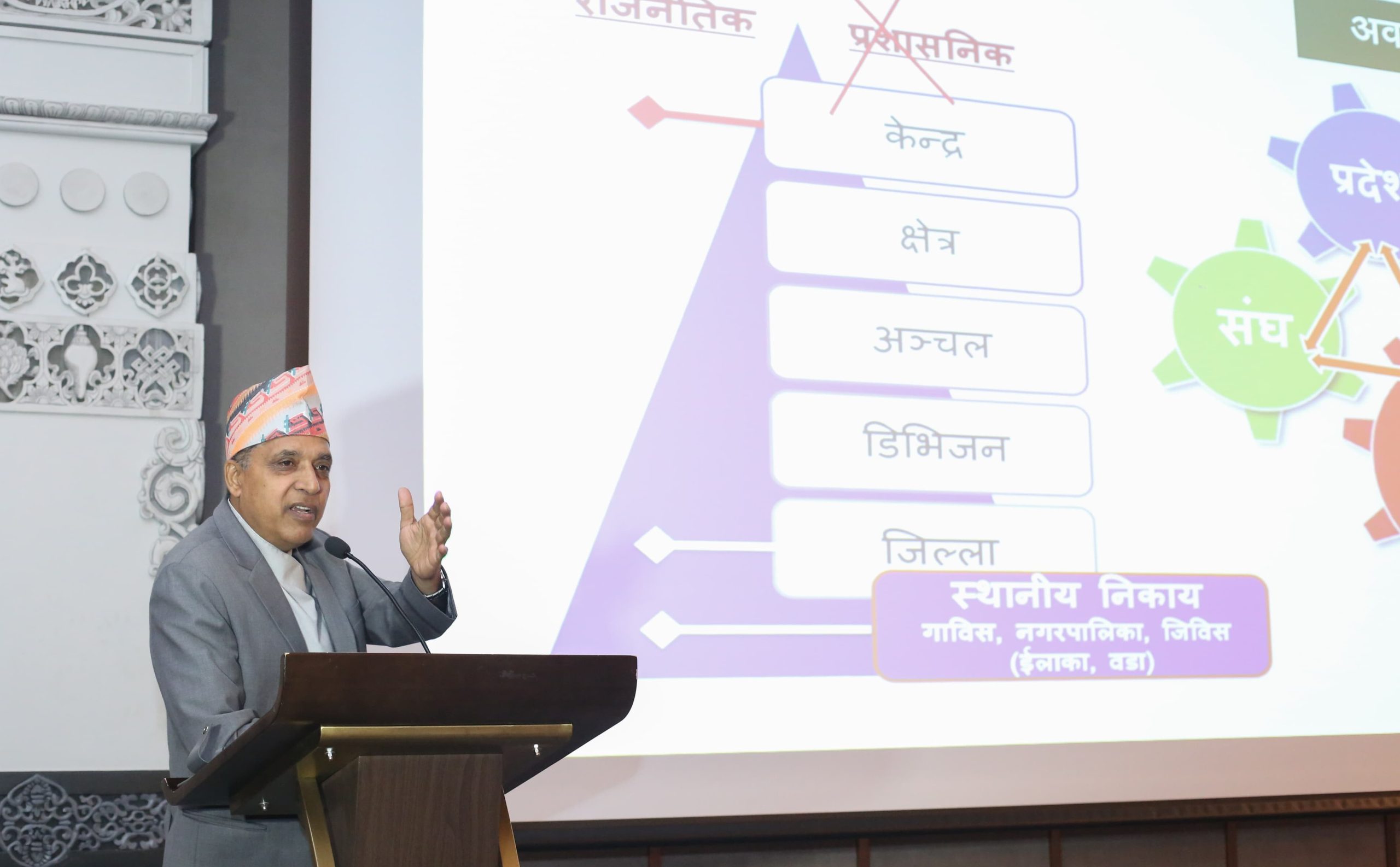Lower governments must be financially empowered for federalism to thrive, experts say

KATHMANDU: As Nepal continues to navigate the complexities of federalism, experts and stakeholders have underscored the necessity of financially empowering lower governments—provincial and local levels—for the system to truly succeed. During a recent event on “Federalism in Nepal: A Financial Perspective” organized by the Society of Economic Journalists-Nepal (SEJON), participants discussed the importance of building financial capacity at the local and provincial levels to ensure the long-term success of federalism.
Economist Achyut Wagle raised concerns about the current state of federalism, stating that without significantly enhancing the capacity of lower governments, federalism would remain ineffective. “There is a tendency to provide rights to the provincial and local governments, only to revoke them later under the pretext of incompetence,” he remarked, adding that such actions only hinder the progress of federalism.
Wagle argued that the political leadership, especially at the national level, needs to understand the essence of federalism and actively support it. “How can we expect federalism to work when political parties themselves lack experts on the subject?” he questioned. Wagle also pointed out the inefficiency in budget management at the local level, noting that 49 local governments have yet to create their budgets, while those that have completed the process have failed to follow basic budgetary principles.
Local governments, according to Wagle, have shown potential, particularly during the COVID-19 pandemic when they played a vital role in managing resources and services. However, he emphasized the need to equip them with sufficient financial resources and training. “Local bodies have proven their capabilities during times of crisis. Now, we need to focus on building their capacity further by providing them with the necessary financial tools and expertise.”
Yatindra K.C., a researcher at the Samriddhi Foundation, echoed these sentiments, stating that the current grants provided to lower governments have not been effective. While local revenue is gradually increasing, he stressed the need for more comparative data to identify areas that require improvement. “We need to assess the strengths and weaknesses of local governments based on their individual achievements rather than comparing them to national averages,” K.C. said.
Chairman of the National Natural Resources and Fiscal Commission, Balananda Poudel, also addressed the issue, emphasizing that local governments are crucial units responsible for governance, development, budgeting, revenue collection, and service delivery. “Federalism will only succeed when these units succeed,” he said. Poudel explained that the Constitution was designed with coordination and collaboration in mind among all three tiers of government—federal, provincial, and local.
Poudel advocated for increasing equalization grants to lower governments while reducing conditional grants, arguing that local bodies should have more autonomy in planning and budgeting. “We need to trust local governments by giving them the financial independence they need. Conditional grants should not take away their planning rights,” he remarked.
However, Poudel criticized the federal government for failing to accurately estimate revenue, leading to budget imbalances. He stressed that while local and provincial governments are still developing their capacities, the federal government, with its years of experience, should be more adept at managing its finances.














Facebook Comment